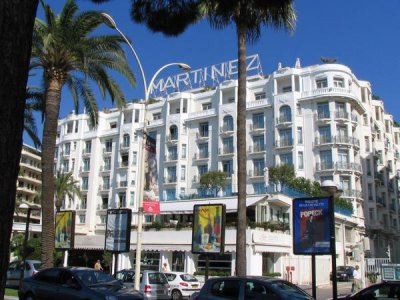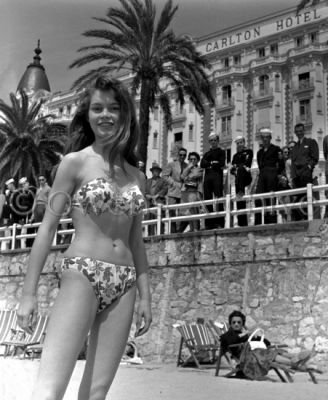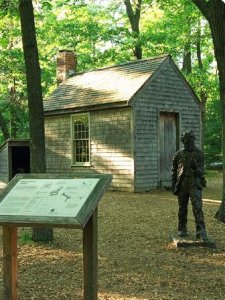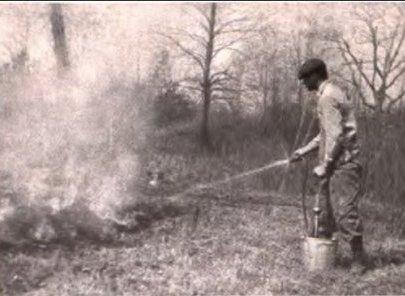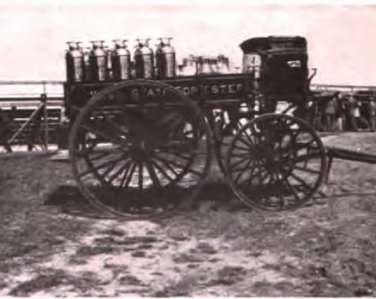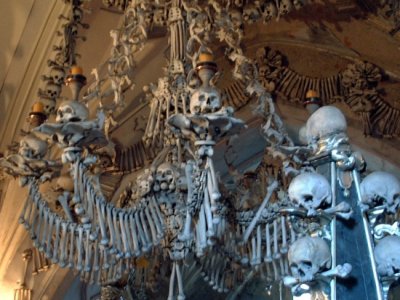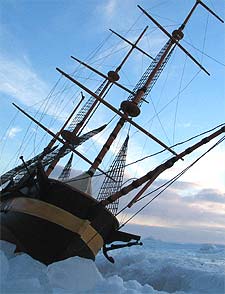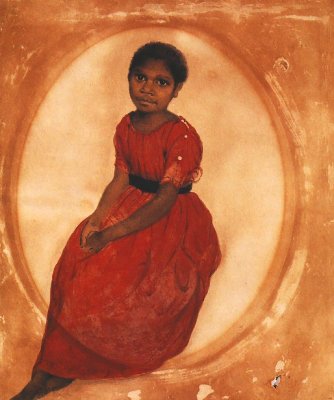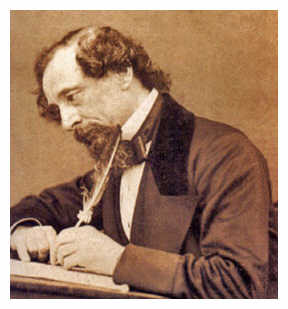Poppies in the Great Game
Monday, August 31st, 2009Seeds of Terror, Gretchen Peters, 2009

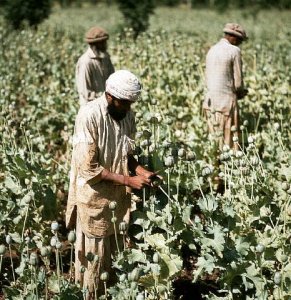
Poppy Harvest
This book can usefully be read as a companion volume to Steve Coll’s Ghost Wars. Where Coll’s sterile account of U.S. CIA involvement in Afghanistan focuses on the role of the CIA in pushing funds and arms matched by equal funding from Saudi Arabian intelligence through Pakistan’s ISI to clandestinely support the Mujahideen extremists, this book tells in a confused and disorganized fashion the same tale with a central focus on the role of opium and heroin smuggling in the same time frame.
In this account, drugs were a major source of funding for the Mujahideen throughout the period of anti Soviet insurgency and gave the fighters sources of revenue and arms independent of CIA or ISI influence. The Soviets found themselves fighting extreme levels of troop drug addiction similar to the U.S. problem with drugs in Vietnam. After the Soviet withdrawal in the late 1980’s, drugs became the major source of revenue and weapons for the fighting factions within Afghanistan.
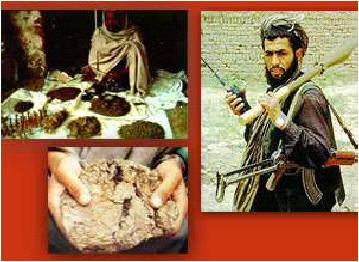
Stages of Opium Production – Mujahideen
In Peter’s account, some American officials were aware of the extent and impact of drug trafficking but were completely ignored in the maniacal focus on embarrassing the Soviet Union with their own version of Vietnam. Beyond this single goal all other factors were conveniently ignored. It probably helped that very little of Afghanistan’s heroin found its way to the U.S. even though it certainly was central to the drug problem of Great Britain and other NATO countries. For a look at the impact of this drug traffic on Britain see the BBC miniseries Traffik. This ignoring the drug problem continued after the withdrawal of the Soviet Union, throughout the tribal battle for control of Afghanistan after the Soviet period, through the rise of the Taliban, the overthrow of the Taliban, and up to today. In particular, the U.S. military has consistently ignored the drug problem, highlighted by Donald Rumsfeld’s pronouncement that “We (U.S. military) don’t do drugs.” Even today there is virtually no cooperation between drug enforcement efforts and military efforts in the country.
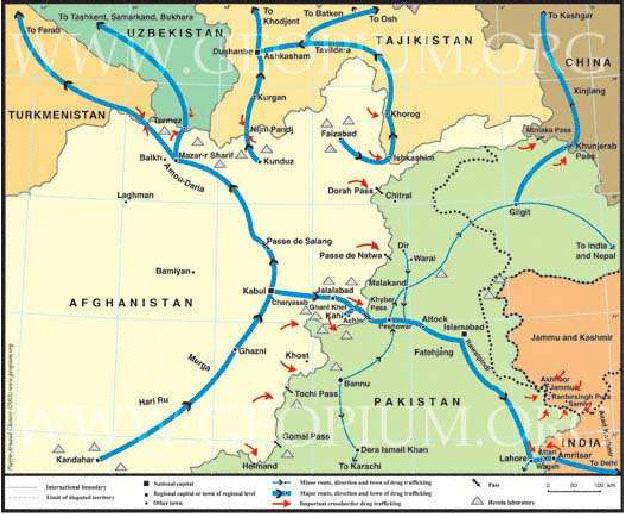
A few Drug Smuggling Routes
Peter’s conclusions are pretty stark and shocking and it is a shame the book isn’t better written . Poppies and drug trafficking account for 30% of Afghanistan’s GDP. If you add the value of other illegal smuggling activity (electronics, appliances, vehicles, weapons) illegal activity probably accounts for more than half of Afghanistan’s economy. The corruption of the Karzai government, local officials, and police start from this dominant fact. Afghanistan is awash in illegal money, weapons, and goods. Bribery and corruption must follow from this fact.
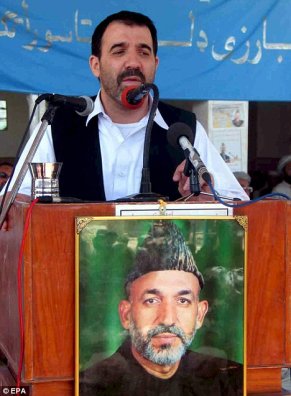
Drug Dealer Wali and brother Hamid Karzai
The American media have given the public the impression that the Taliban and al Qaeda are opposed to drugs and both have made pronouncements that good Muslims should never use them. This impression was enhanced when the Taliban ordered that Poppies not be planted in the year 2000. What the media never told us was that al Quada and the Taliban had stockpiled huge quantities of opium and heroin, the equivalent of about three years of world wide supply, because a glut in the market had driven prices to an all time low. By forbidding the growing of poppies, the Taliban created an instant shortage or perception of a shortage and prices skyrocketed. (Sounds a little like OPEC and oil).
Peters asks how a group of illiterate thugs (Taliban) could organize and run a global market in drug production and distribution. She thinks they can’t, which means that the Taliban has always been backed by drug kingpins who used to Taliban for security and enforcement in return for huge quantities of money and arms and other needed items like Toyota Land Cruisers and Hiluxes. Peter’s has no doubt that both the Taliban and al Qaeda have relied heavily on the drug trade to supply themselves even though the leadership may not have engaged directly in drug deals.
Today the media is continuing to do its number on us by referring to all insurgents in Afghanistan as Taliban. The insurgents themselves seems willing to go along with this designation even though few are connected in any way with the original Mullah Omar group which is still hiding somewhere in the tribal region of Pakistan. We are not facing an organized and integrated Taliban group where it is possible to sit down and negotiate with the leadership. The insurgency is very fragmented. The thought that dollars can be used to buy a change of loyalty of the insurgents is maybe possible but the U.S. would need to outbid the drug lords and it could prove very costly and may not result in any long term changes or improved stability.
When the U.S. pulled back from Afghanistan to focus on Iraq, they turned the fighting over to the NATO coalition. A U.S. coordinator complains that he spends more time in Europe than in Afghanistan. Britain has been given responsibility for anti drug efforts but these efforts are almost never coordinated with the military which makes raids and arrests next to impossible. The U.S. DEA has people in Afghanistan today but they get no more cooperation than the British. Arrests and seizures are few and ineffective and do not impact total drug exports. When military commanders accidentally stumble on a drug cache or convoy or find a major drug lord there is no guarantee the kingpin will be detained or the drugs destroyed. Such is the lack of coordination with the military
Neighboring Iran and Pakistan as well as the former Soviet Stans and Russia are experiencing huge increases in drug addiction and drug crime as a result of the environment in Afghanistan.
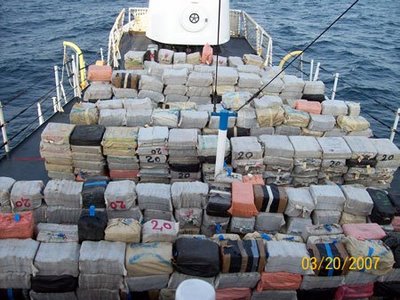
Rare Drug Seizure at Sea
Afghanistan remains a medieval place where modern financial networks don’t exist. Much of the drug trade is barter and where cash transfers take place they are done through the tradition hawala networks which are based on a honor system where actual money is not moved or even recorded in a way that can be traced. Attempts to regulate these networks are currently ineffective.
What happened to those stinger missiles that Coll reported the U.S. supplied to shoot down Soviet helicopters and planes and that the CIA tried to buy back after the Soviet withdrawal? Some were sold by drug runners back to the CIA for enormous sums of money and other were and may still be used to protect drug smuggling convoys making their way to the Iran border.
Corruption extends equally to Pakistan and Iran as well as other middle eastern drug destinations or transit routes. Attacking the drug problem would have to be at the core of any efforts to stabilize Afghanistan and it is clear the problem can’t be attacked without a coordinated regional effort. It is not clear the Obama administration even understands the extent of the problem or has prevailed on the dominant U.S. military to force it to address the problem, cooperating with law enforcement and drug enforcement groups and with intelligence gathering groups. It’s not clear to Peters that the lessons of 9/11 have been learned, much less the lessons of Vietnam. (Remember that U.S. military planes were used to smuggle drugs to the U.S. during Vietnam see biopic – American Gangster starring Denzel Washington.)
Peters makes a good case that drugs are the central funding source behind Islamic extremist terrorists and that the networks cannot be controlled as long as Afghanistan’s drug supply continues. Unfortunately it still seems politically unpopular for politicians to discuss the problem and meanwhile the military continues its resistance to recognition of the centrality of the problem. The book blurb asks Obama to read this but by all indications he hasn’t.
